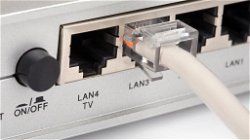The Comprehensive Guide to Technical SEO
James Bond
. 4 min read
The process of ensuring that a website satisfies the technical requirements of contemporary search engines in order to improve its organic rankings is known as technical search engine optimization, or SEO for short. Crawling, indexing, rendering, and the architecture of a website are all essential components of technical search engine optimization.

Why is it important to have a technical SEO?
You might feel tempted to completely ignore this aspect of SEO, but you shouldn't because it plays an important part in the organic traffic that you receive. It's possible that your content is the most comprehensive, helpful, and well-written out there; however, if a search engine can't crawl it, very few people will ever see it. It's the equivalent of a tree falling in the woods when there's no one around to hear it... Is there any sound produced by it? Your content won't make any sense to search engines if you don't have a solid technical SEO foundation to support it.
How difficult is it to perform technical SEO?
The fundamentals of SEO are not overly difficult to learn, but the technical aspects can be difficult to comprehend due to their complexity. I'm going to attempt to simplify everything as much as I can with this guide.
What exactly are "crawling" and "indexing," and how do these processes work?
It is necessary to be familiar with the process by which search engines crawl and index content located on the internet in order to appreciate the significance of these optimizations. Your level of understanding will directly correlate to the level of insight you have regarding the optimization of your website.
Crawling
The process of following the links on a page to navigate to new pages and then continuing to find and follow links on new pages to navigate to even more new pages is referred to as crawling. A software application known as a web crawler is one that navigates the web by following all of the links on a page until it reaches a point where it can no longer discover any new links or pages to crawl.
The creation of an index
Indexing, in its broadest sense, denotes the process of organizing data in accordance with a predetermined schema or plan. In the field of information technology, the term is put to a variety of similar uses, one of which is to make information more presentable and accessible.
Understanding HTTP Status Codes
During the crawling process, bots used by search engines consult HTTP status codes to determine the overall health of your website. When you browse a website or when search engine bots like Googlebot crawl a website, the web server responds with one of these Hypertext Transfer Protocol (HTTP) status codes in response to a request made by the client or a crawler.
Use of SSL
SSL, which stands for "Secure Sockets Layer," is a security protocol that encrypts the connection that a web server and a browser have with one another. A website that uses SSL can be identified fairly easily by the fact that the URL begins with "https://" rather than the more common "http://." In 2014, Google made the announcement that they wanted to see 'HTTPS everywhere,' and that they were going to give preference in search results to websites that used HTTPS security rather than websites that did not use HTTPS security.
In case you need a refresher, the three components that make up Google's Core Web Vitals are as follows
Update your page experience – core web vitals
First Input Delay (FID) is a measurement that determines when a user can first interact with a page. A FID that is less than 100 milliseconds should be maintained on the page in order to provide a satisfying experience for users.
The amount of time it takes for a website to load
When it comes to speed, there are a few things that need to be taken into consideration in order to make your website user-friendly and easy to navigate for its visitors. Increased conversion and decreased bounce rates are both direct results of increased loading speed. In light of this, we have determined the essential recommendations for speed optimization.
Configuring Your Site for Multiple Languages: Hreflang and Alternate
If your website is available in multiple languages, you need to ensure that the hreflang attributes you write are accurate. This attribute reveals the language that is employed on a specific page; consequently, a search engine can return relevant results to users who conduct a search in the same language as the page's language.
Set Up Google Tag Manager
As a digital marketer, you will find that using Google Tag Manager (GTM), even though it isn't technically an SEO tool, will make your life much simpler. You won't need to know how to code or get in touch with a developer if you use GTM because it makes it simple to deploy code on your website, which is something you'll need to do in order to set up the other tools on this checklist.
Check the Robots.txt file
The Robots.txt file is one of the most important ways to communicate to search engines where you want them to crawl on your website as well as what pages on your website you do not want to be indexed. Extremely vital: the robots.txt file only regulates the process of crawling pages; it does not affect the indexing of pages.
Check broken links
Another essential component of technical SEO checklists is the detection and removal of broken links, also known as 404 errors. Broken links on your website will negatively impact the user experience as well as your website's rankings in search results, regardless of how few or how many broken links you have.
More Stories from
Network Programming: Connecting the Digital World
This article delves into the world of network programming, exploring its vital role in enabling seamless communication between devices and systems.
Google: Empowering the Digital Age with Innovation and Information
Explore the remarkable journey of Google, from its humble beginnings as a search engine to becoming a global tech giant.
Fortifying Digital Assets: Ensuring Robust IP Security in a Connected World
It highlights the value of safeguarding intellectual property from external and internal threats, emphasizing the preservation of innovation and competitive advantage.
Decoding the DNS: Enabling Seamless Internet Connectivity
The Domain Name Service (DNS) is a vital system that translates user-friendly domain names into machine-readable IP addresses, enabling seamless internet connectivity.
LAN Event Generator: Powering the Next Generation of Local Area Network Gatherings
Discover the game-changing impact of the LAN Event Generator, a sophisticated software application designed to streamline the organization of LAN events.









.png?width=40&aspect_ratio=1:1)


.png?width=40&aspect_ratio=1:1)